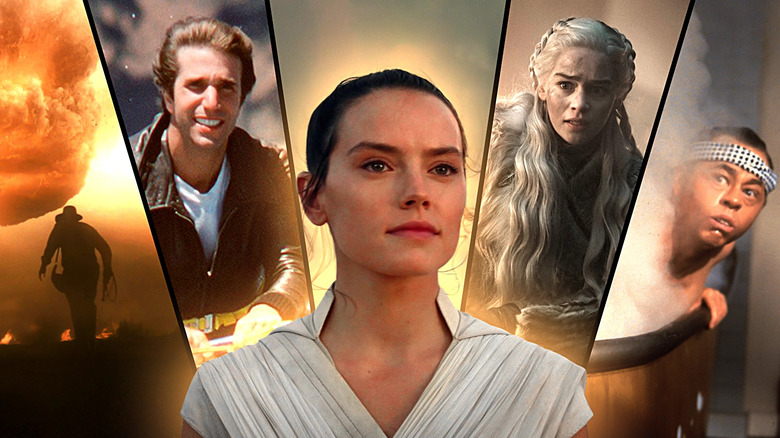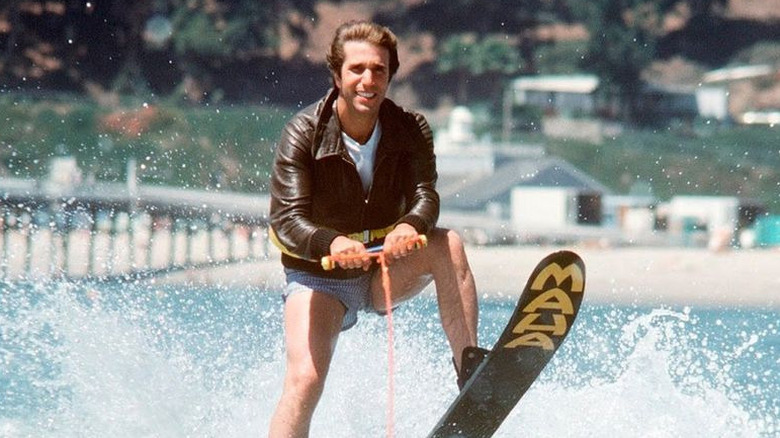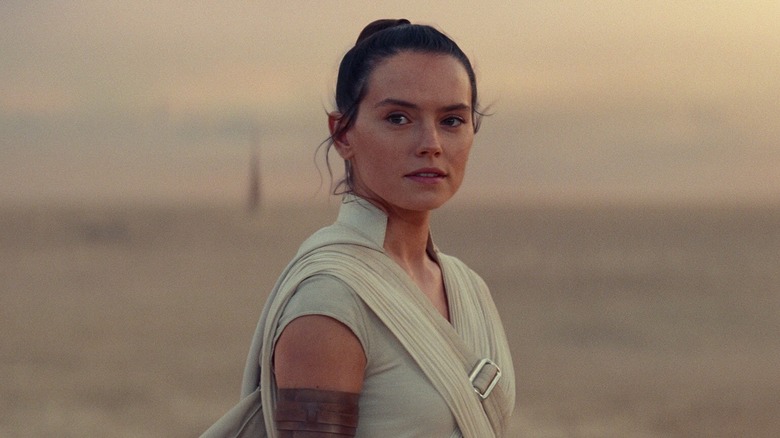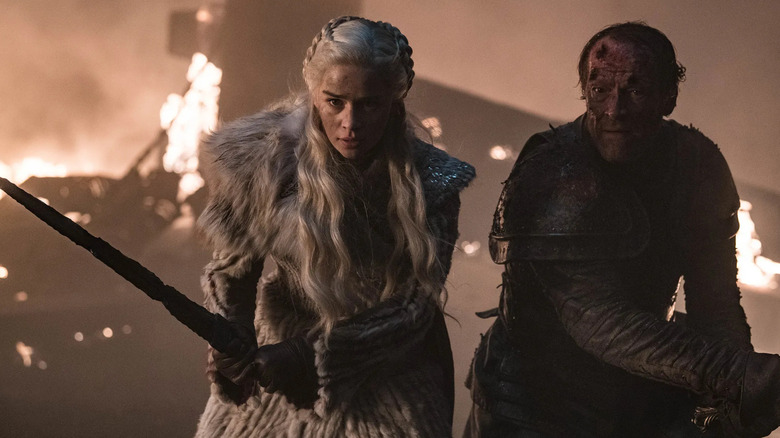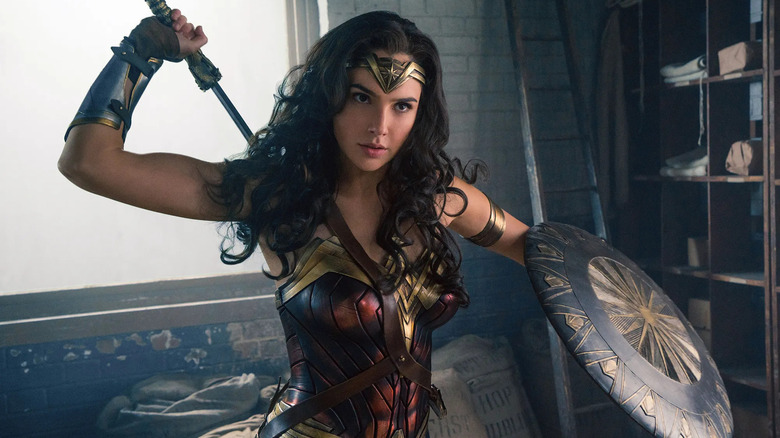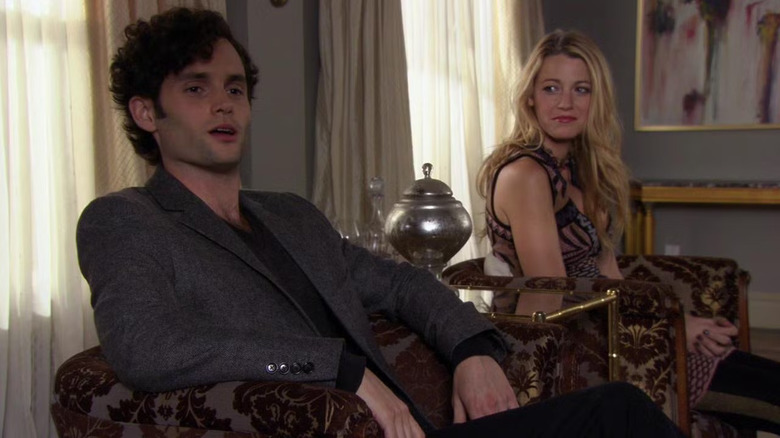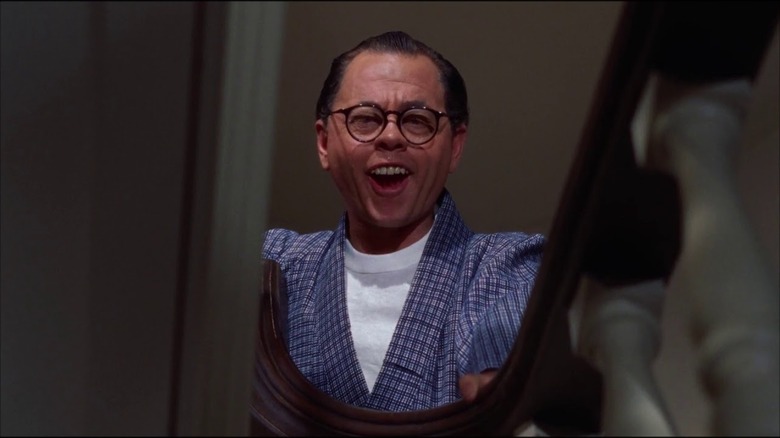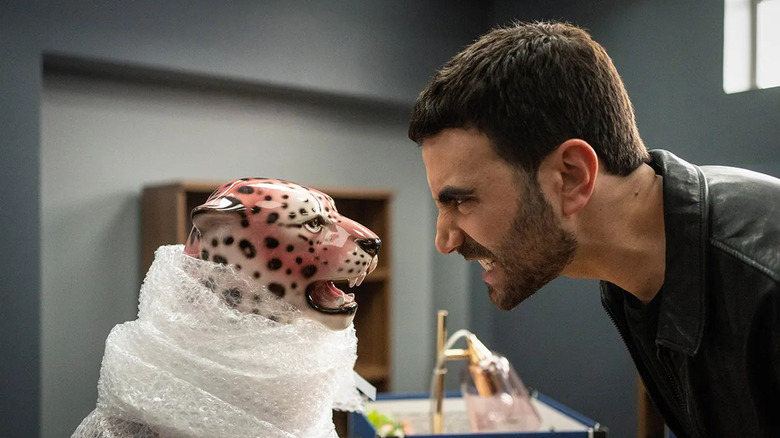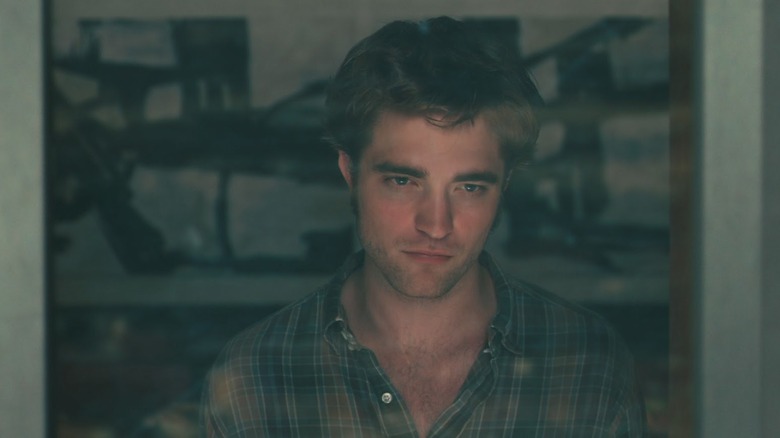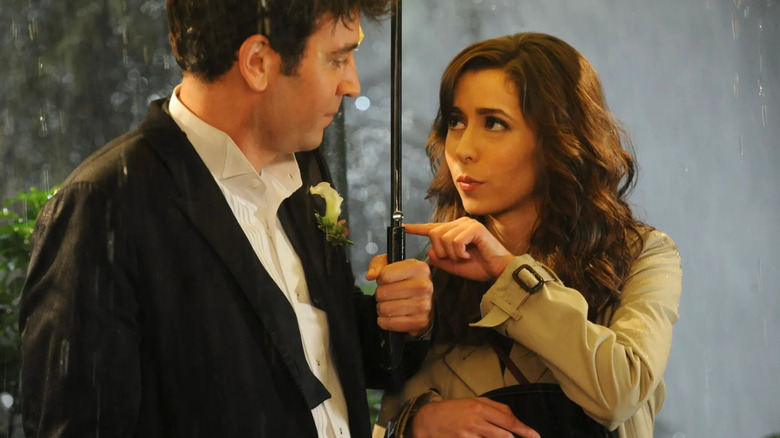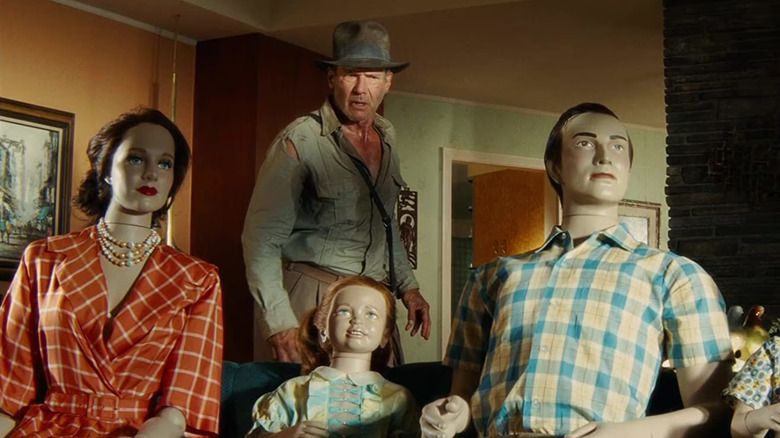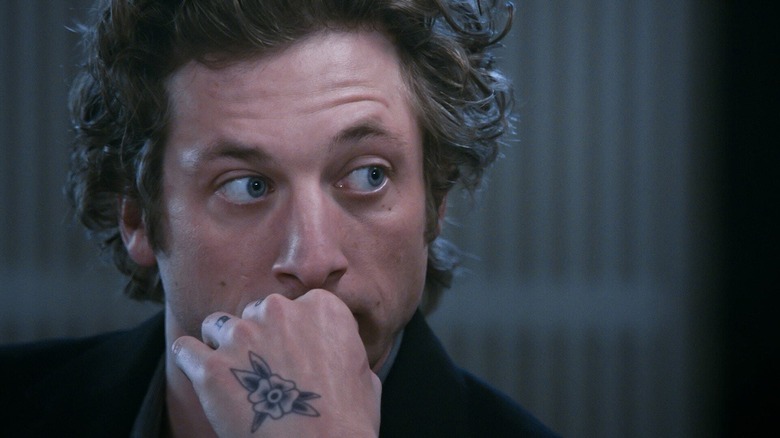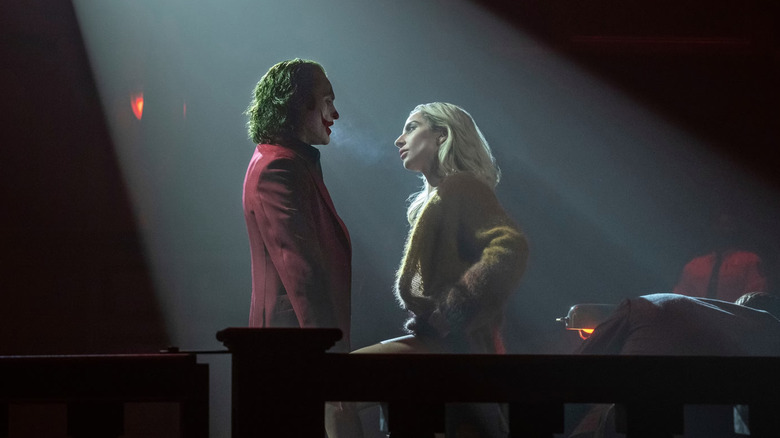12 Scenes That Ruined Entire Movies & TV Shows
It doesn't take a lot for audiences to turn against a movie or television show. It's more common for folks to watch things from the comfort of their own home, as opposed to heading all the way to the theater and paying ridiculous prices for tickets and snacks, so the barrier between staying engaged and turning something off is more fragile than ever.
It's even more apparent nowadays when viewers end up soured on a popular series or franchise just from the sheer terribleness of one scene. It may seem like an exaggeration to say one scene can completely ruin an entire project for most people, but it's usually how we end up with the most disappointing movies of a given year. With all the content available at the click of a button, viewers don't want to waste their time with things that fall below expectations.
This isn't just a new problem of the post-pandemic world, either. Over the history of the entertainment industry, there have been countless films and TV shows that were completely ruined all because of one scene or moment that left viewers asking: Why? Here are 12 scenes that completely ruined movies and TV shows.
Happy Days - Fonz jumps the shark, literally
Have you ever wondered where the phrase "jumping the shark" came from? Famously, it derived from an episode of "Happy Days," one of the most successful network sitcoms of all time, in which Henry Winkler's Arthur "Fonzie" Fonzarelli literally jumped over a shark.
"Happy Days" premiered on ABC in 1974, following the misadventures of teenager Richie (Ron Howard) and his family in 1950s Milwaukee, but the popularity of Winkler's recurring character grew exponentially, especially as Howard left after the seventh season and the Fonz took over as lead. Season 5 of "Happy Days" had already started off on a weird note with its third episode, "Hollywood: Part 3," in which the Fonz is challenged to jump a tiger shark on water skis, and he successfully does so, all while wearing his signature leather jacket.
Since then, "jumping the shark" has been used to describe a moment when television shows go too far and lose their appeal. But Winkler has defended the moment, telling NPR, "To [critics], the Fonz water skiing was just like the last straw. The only thing is it wasn't to the audience, because we were No. 1 for years after that. So it didn't much matter to anybody." "Happy Days" only got more absurd from that point on, such as later that season when they introduced Robin Williams as the alien Mork (who somehow made a horrible script worthy of a spin-off, "Mork & Mindy").
Star Wars: The Rise of Skywalker - Rey's not just a nobody
Let's not beat around the bush: "Star Wars" has always been a divisive franchise. From the appearance of Ewoks in "Return of the Jedi," to the sloppy CGI of "Attack of the Clones," and even with the nonsensical plotlines of "The Mandalorian." However, even the most diehards fans of the sci-fi franchise rolled their eyes during 2019's "The Rise of Skywalker," when the previous film's plot twist that Rey (Daisy Ridley) truly came from nothing was ret-conned by revealing that her grandfather was none other than Emperor Palpatine (Ian McDiarmid).
It's not even the most ridiculous moment to happen in "The Rise of Skywalker," which also has a fake-out death for Chewbacca and ends with Rey on Tatooine telling a stranger that her name is "Rey Skywalker." However, the backlash to "The Rise of Skywalker" may somewhat explain why Disney has cancelled many new "Star Wars" movies in the years since.
Daisy Ridley even acknowledged the fan backlash, telling Rolling Stone, "[It's] beyond my pay grade. I say the words, do the thing. I do love the version of, you can be anyone you want to be, but I also love the version where you can rectify wrongs and can't help what you're born into." Hopefully, fans will still give her upcoming "Star Wars" film a chance.
Game of Thrones - The Battle of Winterfell... all of it
Few television shows have completely demolished their legacy the way "Game of Thrones" did in its eighth and final season. There are countless examples of things fans hated about the last batch of episodes, but one episode stands out above the rest in terms of foreshadowing that "Game of Thrones" was about to disappoint a lot of people: "The Long Night," a.k.a., the Battle of Winterfell.
Since its very first scene, "Game of Thrones" had set viewers up for the expectation that the threat of White Walkers was going to overshadow petty squabbles about who gets to sit on the Iron Throne. And yet, by squeezing the entire threat's climax into 81 minutes and ending it all with Arya, of all characters, killing the Night King, viewers were rightfully underwhelmed. As The Washington Post wrote, "If you asked me whether 'Game of Thrones' is a genuinely great show, after 'The Long Night,' I'd have to answer: not today."
Among the other complains about the battle, which takes up the entire episode, involved the reluctance to kill off any major characters, the poor lighting and cinematography (which the director of photography defended), and reliance on cliche fantasy tropes that "Game of Thrones" has thus far been infamous for playing against. There's a reason audiences now think HBO chasing "Game of Thrones" with spin-offs will destroy them.
Wonder Woman - Ares was behind it all
Patty Jenkins' "Wonder Woman" might be one of the most successful comic book movies of all time, but even its most ardent supporters can agree the film's climax is a total cop-out. The 2017 film mostly follows Diana (Gal Gadot), an Amazon from the island of Themyscira who helps an American spy, Steve Trevor (Chris Pine), put an end to World War I, which she believes to be caused by Ares, the god of war. The film hits an emotional peak when, after killing Erich Ludendorff (Danny Huston), a German general Diana assumes is Ares, the war doesn't end.
That moment for Diana, whose entire worldview has just been destroyed, is immediately retconned with the reveal that Sir Patrick (David Thewlis) was Ares all along, and the two have a big CGI battle over it. If there's anyone to blame for this ridiculous story move, it's apparently Warner Bros., as Patty Jenkins told Marc Maron on the WTF Podcast, "I could feel it creeping up. And then at the last minute, [the studio was] like, 'You know what? We want Ares to show up.' And I was like, 'Godd**n it, we don't have enough time to do that now.'"
It got worse for the franchise when reviews for "Wonder Woman 1984" in 2020 were just as mediocre, blaming Jenkins' lack of confidence. That's probably why "Wonder Woman 3" isn't happening, despite Gal Gadot's claims.
Gossip Girl - Gossip Girl's identity is revealed
The original run of "Gossip Girl" (2007-2012) had a huge cult following that practically made The CW what it is today. The show follows the lives of New York City "it" girl Serena van der Woodsen (Blake Lively) and her social circle, including Blair Waldorf (Leighton Meester), Dan Humphrey (Penn Badgley), and Nate Archibald (Chace Crawford), whose personal lives are leaked to the public from an anonymous blogger known only as, you guessed it, "Gossip Girl."
However, the twist ending to the show revealing the identity of this mysterious omnipotent character, voiced by Kristen Bell throughout the series, confused a lot of audiences. As it turns out, Dan, of all characters, is Gossip Girl. This came as quite a shock to not just viewers of the show, but Badgley, who has even acknowledged that it didn't make that much sense. Many critics felt that the twist ending palpably felt like a disappointment, especially given how the revelation that Dan is Gossip Girl is wildly inconsistent with the rest of the show.
As it turns out, it wasn't the ending the creators had in mind, either. At Vulture Festival in 2019, executive producer Joshua Safran explained (via People), "We worked hard to kind of lay in tiny seeds about it being Eric [van der Woodsen], and then the New York Post wrote an article saying that Gossip Girl was Eric so we were like, 'We gotta scratch that.'"
Breakfast at Tiffany's - Mickey Rooney's racist character
1961's "Breakfast at Tiffany's" should, in some respects, be remembered as one of the most iconic rom-coms of all time. A constant annoyance for Holly Golightly (Audrey Hepburn) in the original novel is her neighbor, Mr. I. Y. Yunioshi. In the 1961 film, Yunioshi is played by Caucasian actor Mickey Rooney, donning fake teeth, glasses, and prosthetics to appear like a Japanese caricature.
It doesn't take a lot of analysis to see that Rooney's portrayal of Yunioshi is, even by 1961's standards, a wildly offensive and stereotypical depiction of Japanese people, though even Rooney felt he was just doing the over-the-top comedic performance that the director, Blake Edwards, wanted. As a result, "Breakfast at Tiffany's" still sparks outcry from Asian-American groups when it's screened, and Rooney's scenes have even been edited out of television re-airings.
Despite the egregious racism that's hard to ignore, some feel "Breakfast at Tiffany's" has remained prolific to this day. For most modern audiences, though, there's just no way to escape the shadow of Mr. Yunioshi, though it did inspire one Asian-American actor, J. Elijah Cho, to write a one-man show inspired by the character, telling the St. Pete Catalyst, "I tried to imagine a way where, if he'd done it differently, would it make people as angry?"
Ted Lasso - Roy and Keeley break the audience's hearts
For two seasons, "Ted Lasso" was one of the best comedies on television. The show centers on the struggling AFC Richmond football team and the efforts of their new head coach, Ted Lasso (Jason Sudeikis), to turn their luck around. Throughout the show's first season, audiences fell in love with the romance between two opposites: short-tempered player Roy Kent (Brett Goldstein) and bubbly marketing manager Keeley Jones (Juno Temple).
However, the season 3 premiere of "Ted Lasso" pulled the rug out from under fans by revealing that the two have broken up, and not only that, but they broke up off-screen. As Goldstein, also a writer on the show, told IndieWire, even he had a hard time wrapping his head around the break-up, saying, "I think, sadly, he feels he's not worthy of love or happiness. So he's a bit self destructive and shuts down things that would make him happy."
The two reconcile later in the season, but not for long, as Keeley ends up choosing to be with nobody rather than be with either Roy or her other ex, Jamie Tartt (Phil Dunster), which again felt like an unnecessary slight towards audiences who were rooting for her and Roy. Aside from that, the overall messiness of the rest of "Ted Lasso" season 3 disappointed fans.
Remember Me - The pan out to end all pan outs
For almost the entirety of its 108-minute runtime, "Remember Me" is a fairly decent romantic drama starring Robert Pattinson and Emile de Ravin as NYU classmates who connect over their shared grief. All seems well towards the end of the film as Pattinson's character, Tyler, waits to meet his father in his office, which ends up being located in the North Tower of the World Trade Center. That's right, the twist ending to "Remember Me" reveals that the date is none other than September 11, 2001.
As can be expected, this sudden and seemingly-out-of-nowhere twist polarized audiences and pretty much overshadowed everything that came before it. There were critics who felt there was a strong, emotional love story at its core, but others, like Jake Coyle for the Associated Press, wrote (via Alt Film Guide), "Long before the big reveal ending, one begins to feel 'Remember Me' is romanticizing -– even fetishizing -– tragedy. There's a pretentious reveling in emotional scars and painful loss."
"Remember Me" certainly won't go down as one of the greatest Robert Pattinson movies, but even a decade after its release, people are still going back to it and criticizing how shockingly offensive and exploitative those final moments of the film are.
How I Met Your Mother - Ted moves on by not moving on
"How I Met Your Mother" had a near-impossible task kicking off its ninth season by introducing audiences to a new character: Cristin Milioti as Tracy McConnell, the titular Mother whom Ted Mosby (Josh Radnor) marries and has two children with. The entire sitcom hinged on sticking that landing, and against all odds, creators Carter Bays and Craig Thomas nailed it. Tracy is warm, funny, and a perfect match for Ted, making most of the final season a home run. That is... until the finale.
The hour-long "Last Forever" undid a lot of goodwill with fans not just by breaking up Barney (Neil Patrick Harris) and Robin (Cobie Smulders), but by revealing that Tracy passes away in the future, explaining why Ted is telling his children about how they met. Furthermore, Ted's children encourage him to get back together with Robin. Reactions were divided; while some felt the Mother's death was a strong narrative choice, the seasons of character development undone as a result angered others.
As Time magazine wrote in critique of the showrunners' dedication to an ending they wrote early in the show's run, "Stories change over nine years, characters do, people do. And people did over the course of ['How I Met Your Mother'] – only to be wrenched back over the course of an hour, because that was the Plan." Like Ted, at least audiences have a lot of fond memories they can cling to.
Indiana Jones and the Kingdom of the Crystal Skull - Indy survives the scientifically impossible
While the Fonz may have "jumped the shark" in "Happy Days," in 2008, a variation of that phrase hit the lexicon after the release of "Indiana Jones and the Kingdom of the Crystal Skull." The fourth film in the franchise notably features an opening sequence in which Indy avoids death-by-atomic-bomb-test in Nevada by hiding in a lead-lined refrigerator. As a result, "nuking the fridge" became synonymous with franchises going overboard with too many sequels.
That being said, "Crystal Skull" has fans who praised its pulpy action and nailing the tone of the original trilogy, but many had a similar reaction to it as they did with George Lucas' "Star Wars" prequels (which also found ardent fans eventually). Amongst criticisms of the film's plot, which involves ancient aliens, were countless arguments that the fridge nuke specifically drove the series (which, reminder, previously featured Nazis' heads exploding from the Ark of the Covenant) into absurdist territory.
Although George Lucas insists it's possible to "nuke the fridge" and survive, the blog "Overthinking It" wrote, "[I]n order for an archeologist-stuffed Frigidaire to be accelerated by an atomic blast to the speeds observed in this sequence, it would need to be placed so close to the bomb as to be surely obliterated by the blast's other myriad effects." That's all scientific jargon for: Indiana Jones should be toast.
The Bear - Carmy's big moment underwhelmed
There's been a lot of discourse online as to whether or not FX's "The Bear" is or isn't a comedy series. Whatever side of the argument you're on, there's one area lots of fans can agree with: the third season was somewhat of a let-down. Among the many criticisms of it pertained to the character arc of Carmy (Jeremy Allen White), with the final moments of the season finally seeing him confront his former head chef David (Joel McHale), only for the result to be less-than-satisfying for long-time fans of the series.
While some pointed to a moment in the confrontation blatantly ripped from "Mad Men," others felt that despite David's explanation for the ends justifying the means coming off as too realistic (thanks to White's performance), it raises too many questions about where exactly Carmy's character arc is heading. Especially after the season ends with a cliffhanger before revealing a fatal review of the titular restaurant, which Forbes called, "very frustrating, and reminds me of a totally unrelated show, 'The Walking Dead.'"
Ultimately, Carmy's confrontation with David proved to a lot of audience members that, if this show has any questions to ask, it's this: "Was the abuse suffered by Carmy worth it to make him a great chef?" If only there was an Oscar-winning Best Picture nominee from a decade ago that asked the very same thing... *cough* "Whiplash" *cough*.
Joker: Folie à Deux - The clown makeup comes off
Perhaps the most disappointing movie of 2024 was "Joker: Folie à Deux," the highly-anticipated sequel to 2019's Oscar-winning "Joker," starring Joaquin Phoenix as the titular future Batman archenemy. The new film seemed promising, with Lady Gaga joining the sequel as Harley Quinn, only quickly into its marketing, fans noticed that it was taking way too many creative liberties with the lore of the comic book franchise.
In the end result, "Folie à Deux" ended up feeling pointless to a lot of fans. As David Ehrlich wrote for IndieWire, "[I]t actively courts the disappointment of its own fandom in order to articulate how cruelly Arthur is co-opted by the fantasies of the collective unconscious." In the film's finale, Arthur renounces the Joker persona publicly, and he's later stabbed to death by a fellow prisoner, who seems primed to be his replacement.
Among all the reasons why this ending is considered divisive, the fact that Arthur revealed to not be "the" Joker according to Todd Phillips makes us wonder... why does this film even exist?
